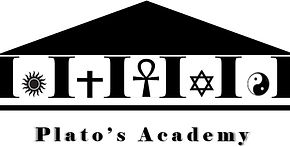
On children:
Your children are not your children.
They are the sons and daughters of Life’s longing for itself.
They come through you but not from you,
And though they are with you, yet they belong not to you.
You may give them your love but not your thoughts.
For they have their own thoughts.
You may house their bodies but not their souls,
For their souls dwell in the house of tomorrow, which you cannot visit, not even in your dreams.
You may strive to be like them, but seek not to make them like you.
For life goes not backward nor tarries with yesterday.
You are the bows from which your children as living arrows are sent forth.
The archer sees the mark upon the path of the infinite, and He bends you with His might
that His arrows may go swift and far.
Let your bending in the archer’s hand be for gladness;
For even as He loves the arrow that flies, so He loves also the bow that is stable
On religion:
Your daily life is your temple and your religion.
Whenever you enter into it take with you your all.
Take the slough and the forge and the mallet and the lute,
The things you have fashioned in necessity or for delight.
For in reverie you cannot rise above your achievements nor fall lower than your failures.
And take with you all men:
For in adoration you cannot fly higher than their hopes nor humble yourself lower than their despair.
And if you would know God, be not therefore a solver of riddles.
Rather look about you and you shall see Him playing with your children.
And look into space; you shall see Him walking in the cloud, outstretching His arms in the lightning and descending in rain.
You shall see Him smiling in flowers, then rising and waving His hands in trees.
—Kahlil Gibran, “On Children” from The Prophet
The Prophet can be read for free by clicking here
Kahlil Gibran was a Lebanese poet, artist, and writer. He grew up and came to prominence in the United States.
His most famous work was the book ‘The Prophet’ which he wrote in the 1920s. In the United States ‘The Prophet’ is a bestselling book, second only to the Bible.
He grew up in a Christian family, but he drew inspiration from Islamic mysticism, Indian philosophies, and other religious traditions, believing in the fundamental unity of religions.
A little while, a moment of rest upon the wind, and another woman shall bear me
Kahlil Gibran, Lebanese poet
Thoughts
Get Inspired
Contact Us
Plato's Academy
All copyright owned by Plato's Academy

Bringing Indigos, Crystals, Mystics and other Light Workers Together
